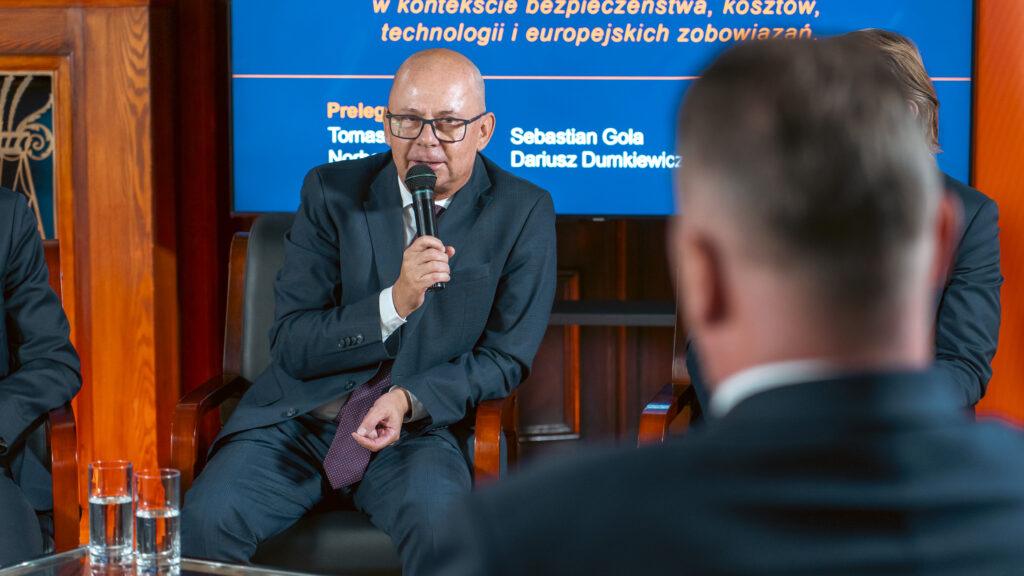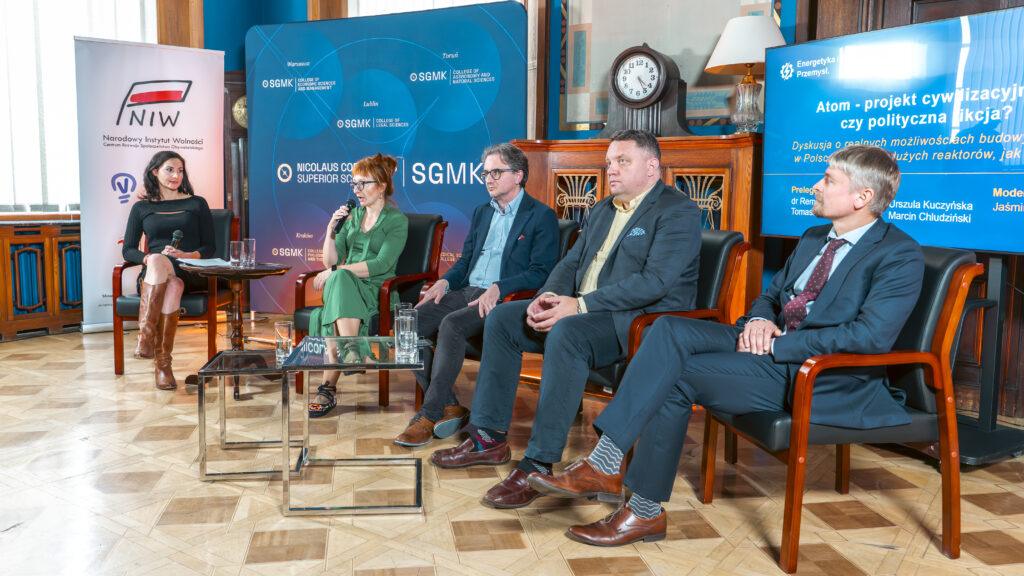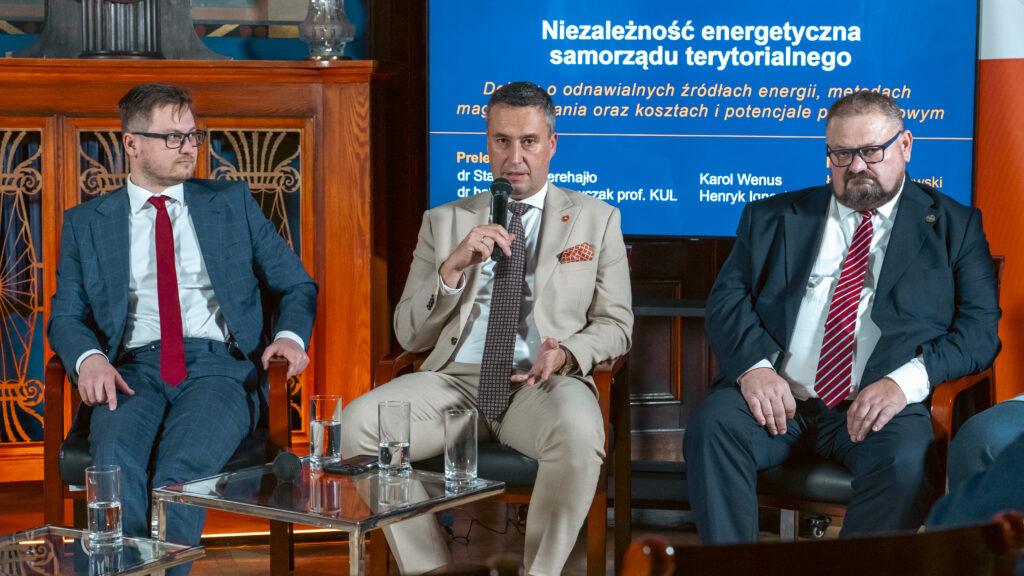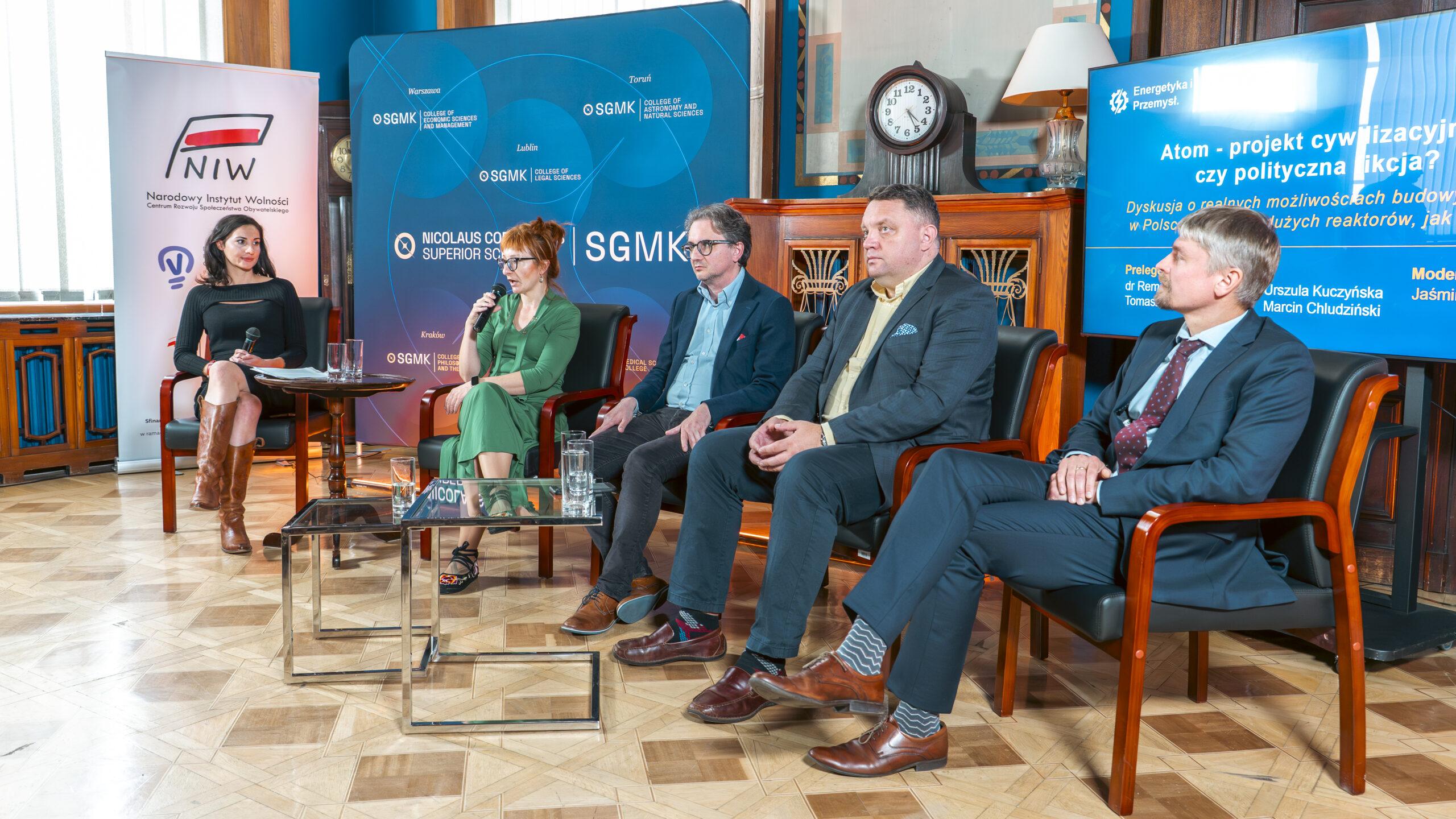The strategic challenges of Poland’s energy transition were the theme of the “Energy and Industry” conference, which took place on September 18 this year in Warsaw. The Nicolaus Copernicus School was a strategic partner of the event.
The conference brought together representatives of public administration, science, business, and local governments. Among the guests was Piotr Naimski, former minister and government plenipotentiary for strategic energy infrastructure. The conference was opened by Dr. Przemysław Czarnek, professor at the Catholic University of Lublin and Minister of Education and Science in 2020-2023.
During the first panel, “Where is the Polish energy sector heading?”, the vision of an energy mix based half on renewable energy sources and the rest on nuclear and gas was discussed. Experts emphasized the importance of modernizing energy networks and the challenges associated with balancing renewable energy sources. They also pointed to the key question of who should bear the costs of the transition—the state, industry, or end users.

The second panel, entitled “Atom – a civilizational project or political fiction?”, was devoted to the prospects for the development of nuclear energy in Poland. The discussions focused on the realistic possibilities for implementing the nuclear program by 2040, the role of small modular reactors (SMRs) in industry, and the importance of location and public acceptance for this type of investment. A special place was also given to the discussion on the potential of Polish industry in the supply chain for the nuclear sector.

In turn, “Energy independence of local government” was the topic of the third panel. Experts drew attention to the growing role of local energy sources – from photovoltaics and biogas plants, through small hydroelectric power plants, to energy storage facilities and microgrids. The discussions also focused on financing models, partnership opportunities, and improving the energy efficiency of public buildings. The important role of educating residents in the energy transition process was also highlighted.

The conference provided a forum for exchanging views on the future of the Polish energy sector, the challenges associated with its transformation, and directions for development in terms of energy security and the economy.
During the discussion, it was emphasized that the energy transition process is not only a matter of new technologies and investments, but also of broad cooperation between science, local governments, and industry. The discussion highlighted the need for a comprehensive and responsible approach to shaping energy policy, which will determine the future of the security and competitiveness of the Polish economy.




